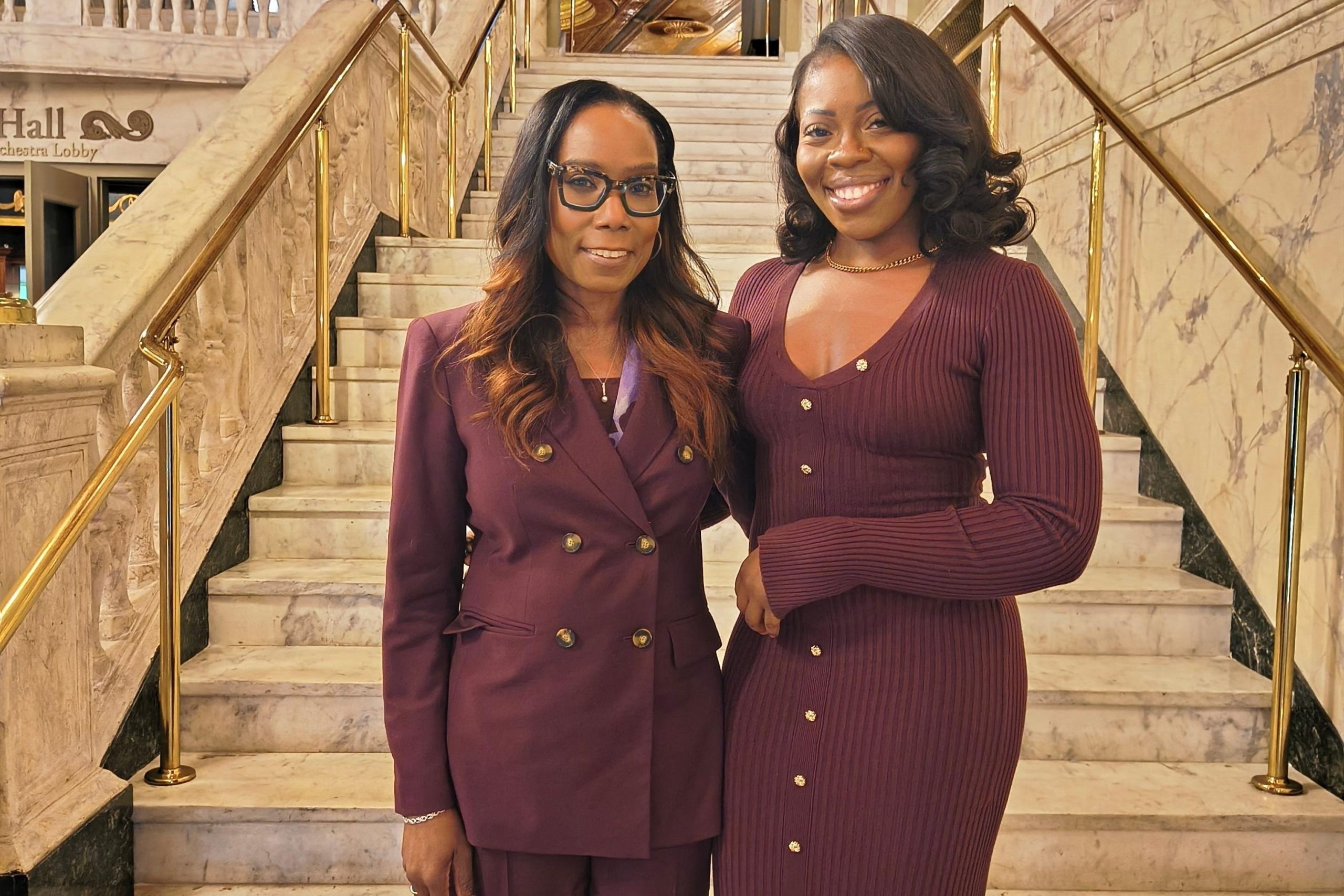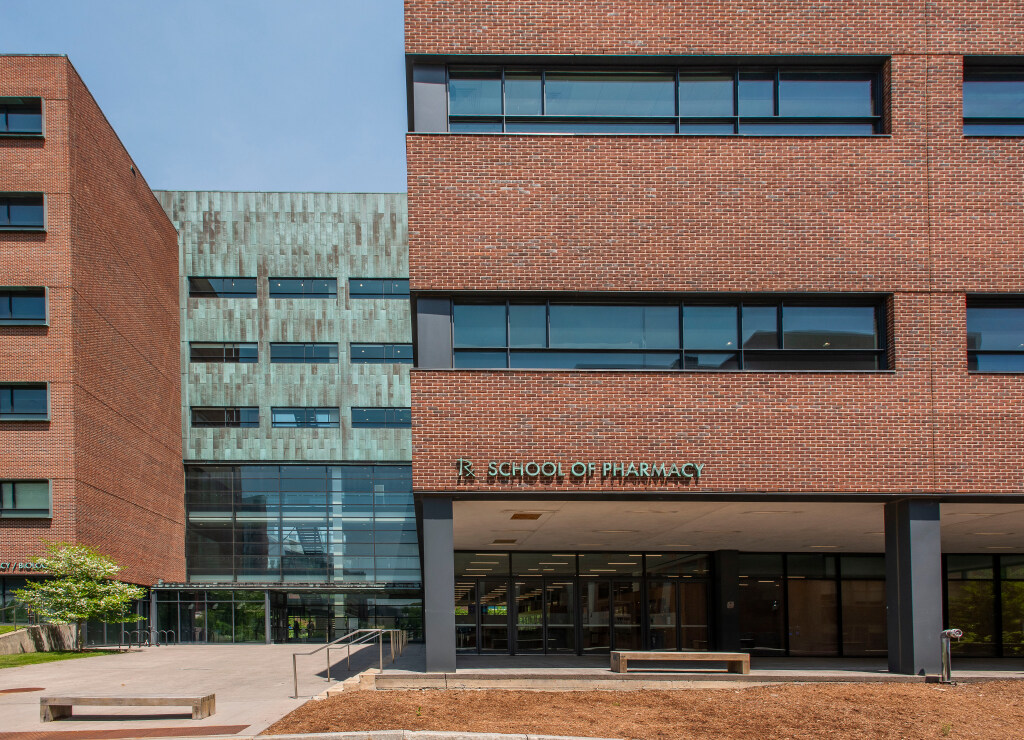Neag School of Education associate professor Tutita M. Casa and former students Alexa E. Freitas ’22 (ED), ’23 MA; Riki Fujioka ’22 (ED), ’23 MA; and Haley M. Zmijewski ’22 (ED), ’23 MA, recently received the Linking Research and Practice Outstanding Publication Award from the National Council of Teachers of Mathematics (NCTM) for their article “Developing the Write Reasoning in Kindergarten Mathematics.” The honor was presented during NCTM’s 2025 Annual Meeting and Exposition, held Oct. 15–18 in Atlanta.
NCTM is the world’s largest mathematics education organization, advocating for high-quality teaching and learning for all students. The four-day conference invited math educators to connect, collaborate, and exchange ideas for advancing instruction.
Casa, who accepted the award on behalf of herself and her former students, says, “It’s really validating for them to get recognized for the hard work they’ve completed for almost a year. This is an international publication, and so many people can benefit from what was accomplished in their classrooms.”
It’s really validating for them to get recognized for the hard work they’ve been doing for about a year. This is an international publication, and so many people can benefit from what was accomplished in their classrooms. — Tutita Casa
As part of Casa’s yearlong master’s seminar in the Neag School’s Integrated Bachelor’s/Master’s teacher education program, students read a selection of research literature, including pieces she co-published with former students in her area of expertise. Drawing inspiration from those readings, Freitas, Fujioka, and Zmijewski designed their inquiry project around one of Casa’s ongoing research models, the Comprehensive Mathematical Discourse Framework. This framework explores how to engage elementary students in meaningful mathematical conversations – extending beyond verbal exchanges to get them to engage as mathematical writers.
“As a team, we wanted to learn more about mathematical writing in primary classrooms,” says Freitas, who is a fifth-grade teacher at Charter Oak International Academy in West Hartford, Connecticut. “Since students in these grades are still developing foundational literacy skills, we wondered how we could support those skills through mathematical writing.”

Building on this idea, the preservice teachers adapted the implementation of the Mathematical Writing Cycle, where students typically begin with an activity, often a game, that encourages reasoning about key mathematical concepts. The teacher then facilitates a class discussion about a writing prompt connected to that experience while recording students’ contributions to guide their development as mathematical thinkers and writers. Students then respond on their own to the prompt, before reflecting on one another’s writing.
“I hope that this article will really drive home the point that students of all ages are capable of amazing and hard things,” says Zmijewski, a fifth-grade math and science teacher at Mansfield Middle School. “When we started exploring a topic and age group to work with, I thought that asking kindergarten students to engage in the mathematical writing process might be too challenging. However, from day one, the young students we worked with surprised me in the best way possible. This project inspired me to hold all students to the highest standard because they will rise to achieve it. I hope it inspires other educators in the same way.”
“At my core, I 100% believe that students as young as those in the primary grades are capable of reasoning and communicating their mathematical ideas,” Casa says. “I was pleased to see that my students could recognize that they could have their kindergarteners write.”
The group began by researching strategies for integrating writing into mathematics instruction, then applied what they learned through action research in the classroom. In two different school settings, students participated in a writing task centered on “geometrical cookies,” combining mathematical reasoning with creative expression.
I hope that this article will really drive home the point that students of all ages are capable of amazing and hard things. — Haley M. Zmijewski ’22 (ED), ’23 MA
“When writing the article, we divided the work into sections and began by summarizing our research,” Freitas says. “The writing process was very collaborative — we worked together in real time, sharing ideas and discussing phrasing as we went. Dr. Casa provided ongoing feedback, which we incorporated along the way.”
They observed significant growth in their kindergarteners’ mathematical writing when they explicitly modeled specific writing skills. They focused on strategies, such as using phonetic spelling and incorporating sight words to help students express their mathematical reasoning more clearly. Through class discussions, these young students also had the chance to review one another’s reasoning, support their peers’ writing, and engage as both writers and readers.

“Communicating mathematically is foundational to being a mathematician, and we certainly don’t want to keep young students out of that ‘club,’ so to speak,” Casa says. “I was pleased to hear that other math educators share the same belief in the young students as we do.”
As they continued their work, the Neag School preservice teachers reflected on how the Mathematical Writing Cycle could be adapted for different classroom needs. They recognized that some classes might benefit from spending more time in certain phases of the cycle, such as engaging in shared experiences to build a stronger foundation before writing. They also noted the importance of giving students multiple opportunities to provide and receive feedback, allowing them to develop both their mathematical thinking and writing skills in tandem.
“I have to give all credit to Dr. Casa for getting us involved in this project,” Zmijewski says. “Through her seminar, we were encouraged to summarize our internship year project into an article that could be submitted for publication. I have always had a love for math and a passion for helping students grow on their journey with math, so working with these young students to get them excited about math and being able to share all that I learned through this article felt like the perfect way to wrap up my clinical experience through UConn.”
All three students expressed excitement over the article being published, let alone receiving an award. They say that writing this article was truly a once-in-a-lifetime experience, with the research process influencing their everyday teaching habits.
“The biggest takeaway for me is the value of action research in teaching,” Freitas says. “As educators, we constantly learn about new instructional strategies, implement them, analyze what’s working, and adjust. It’s an ongoing cycle of improving student learning. This experience also prepared me well for the teacher evaluation process, which really mirrors that same cycle of reflection and growth.”



